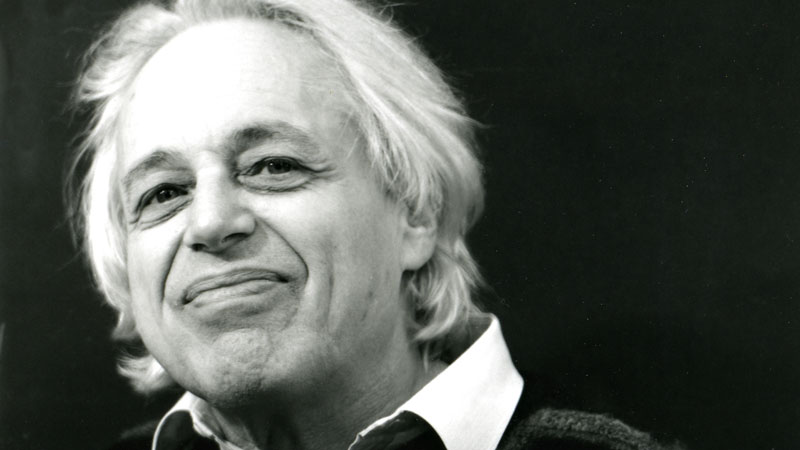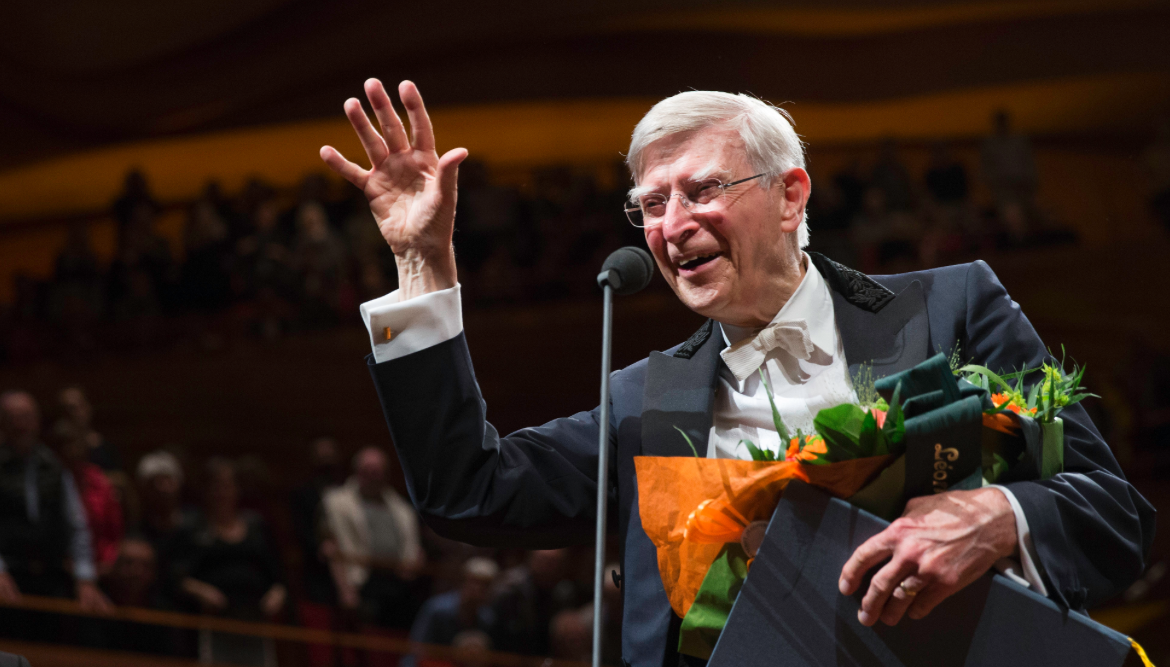léonie sonning music prize 1968
The British composer Benjamin Britten received the Léonie Sonning Music Prize of 55,000 Danish kroner at a performance of his opera The Turn of the Screw on 25 May 1968 at the Royal Theatre.
The programme
Benjamin Britten The opera The Turn of the Screw
The Royal Danish Orchestra
Conductor: Arne Hammelboe
On Saturday, 25 May 1968, a concert was held in Glyptotekets Festsal in honour of Benjamin Britten with the following programme:
Jørgen Jersild Quartet for flute, clarinet, cello and harp
Vagn Holmboe String Quartet no. 7
Benjamin Britten Suite for cello solo
Leif Thybo Flute quartet: Hommage à Benjamin Britten
Elisabeth Sigursson, clarinet
Erling Bløndal Bengtsson, cello
Osian Ellis, harp
Poul Birkelund Kvartetten
The Copenhagen String Quartet
citation
The prize was presented by the rector of the Royal Danish Academy of Music, Svend Westergaard. In the prize speech, he expressed his admiration for the artistic quality of Britten’s works, highlightinf him as a true exponent of humanism and paying tribute to his awareness of his humanitarian obligations.
The official citation has unfortunately been lost to history.
In his speech of thanks, Britten made the following humorous reply, according to the newspaper Aktuelt: “‘artists should be self-sufficient, sitting in their towers making masterpieces and being equally happy with their success. But it is not like that and it has never been like that,’ [Britten] said with a big smile. ‘Music must have both an audience to hear it and artists to perform it. If this is not the case, you have to take it with you. But on a night like tonight, when I have experienced a magnificent performance of my opera, have received an honorable award for which I thanks Mrs Sonning, and a warm and long-lasting applause, then yes, it seems like being an artist is too much of a good thing.’”
Benjamin Britten and Denmark
Britten’s music has been performed regularly in Denmark since the postwar years. As early as 1947, his 1945 opera Peter Grimes was performed at the Royal Theatre. In September 1949, Britten came to Copenhagen with his own opera company, The English Opera Group, to give a guest performance of his latest operas, The Rape of Lucretia and Albert Herring. The Danish tenor Aksel Schiøtz had also participated in the premiere of The Rape of Lucretia at the Glyndebourne Festival in 1946. The two operas were performed a few years later by Danish singers at the Royal Theatre, while Britten’s children’s opera Let’s Make an Opera was performed by the Stage School in 1951. As an instrumental composer, Britten was also a well-known figure in Denmark. In 1954 the Danish National Symphony Orchestra made the first recording of his Sinfonia da Requiem, conducted by the composer himself. Britten’s works were regularly performed by Danish musicians on the radio and in 1963 Britten’s War Requiem was performed in Denmark for the first time, under the auspices of the Aarhus Symphony Orchestra and conductor Per Dreier.
On the afternoon of the prize ceremony in 1968, a concert was held at the Glyptotek’s main hall in honour of Britten. The Copenhagen String Quartet and the Poul Birkelund Quartet participated, together with Elisabeth Sigursson (clarinet), Erling Bløndal Bengtsson (cello) and Ossian Ellis (harp). The concert opened with a new tribute work, a flute quartet by Leif Thybo titled Hommage à Benjamin Britten. The work was based on quotes from Britten’s operas and songs. ‘In honour of a master, Thybo has borrowed words and sentences from his language, but treated them as part of a musically flowing whole with an undertone of warmth,’ wrote Politiken’s reviewer Frede Schandorph Petersen. ‘Thybo expressed thanks for the loan, handing Britten the score for his quartet, which was also taken with good humour. Jørgen Jersild’s Fantasia e canto affettuoso, Vagn Holmboe’s String Quartet No 7 and Britten’s own Cello Suite No 1, played by Erling Bløndal Bengtsson, were also performed. This music, saturated with bow strokes, furrowed with resin, imbued with melodies and fantasies culminates in a kind of Fantasia Upon One Note, in which the Briton wears the same clothes as Purcell centuries before him. With that, he is bound to a deep tradition that he has renewed, made lively, warmed up artistically and touched the hearts of those who appreciate music,’ wrote Politiken.
The daily press wrote, among other things:
On the stage, it was done brilliantly: Bonna Søndberg was both musically and dramatically excellent, completely immersed in the governesses’ strange development of consciousness. As the boy Miles, we heard Lars Ulrik Mortensen, who obviously has significant abilities. He aroused cheers with his impressive imitation of piano playing in the second act, and it was deserved. As the girl Flora, Grith Fjeldmose was once again ideal.
(Berlingske Tidende)
Benjamin Britten is undeniably one of the most prominent and versatile composers of our time, and as a musical dramatist, one of the most significant. His most distinguished characteristic is his contemporaneity, with which he has been able to make contact with his audience in all the genres to which he has lent his genius – from the most discerning to the most popular.
(Rune Plate, Berlingske Tidende, 25 May 1968)





